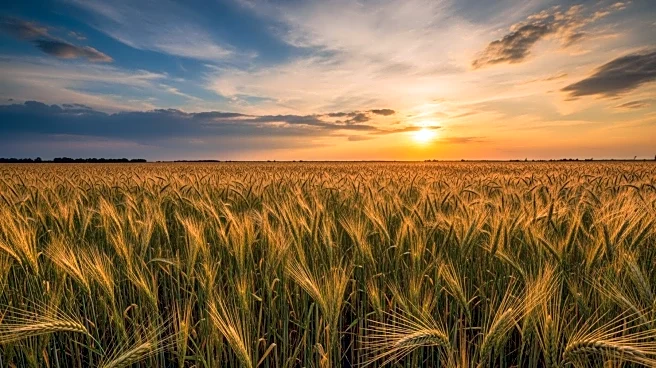What's Happening?
Iran's agriculture minister, Gholamreza Nouri Ghezeljeh, has highlighted the country's severe food security challenges, citing abnormal macroeconomic indicators and unprecedented droughts. The Ministry of Intelligence has warned of potential economic and security crises, including rising unemployment and social unrest, which could exacerbate food security issues. Despite efforts to achieve self-sufficiency in wheat, Iran remains reliant on imports for grains and agricultural products. The situation is compounded by water shortages, with 80% to 90% of water resources used in agriculture, leading to frequent urban water cuts.
Why It's Important?
The food security challenges in Iran have significant implications for the country's stability and economic health. The reliance on imports for essential agricultural products highlights vulnerabilities in Iran's self-sufficiency goals. The economic strain, coupled with water shortages, poses risks of social unrest and further economic downturns. The situation underscores the need for strategic planning and investment in sustainable agricultural practices to mitigate the impact of climate change and economic pressures. The broader implications may affect regional stability and international relations, particularly concerning Iran's oil sales and economic partnerships.
What's Next?
Iran may need to explore alternative agricultural methods and water conservation strategies to address the food security crisis. The government might increase collaboration with international partners to secure food supplies and improve agricultural infrastructure. Potential policy shifts could focus on reducing water consumption in agriculture and enhancing import strategies for essential goods. The situation may prompt further discussions within the Iranian regime on balancing economic priorities with food security needs.









